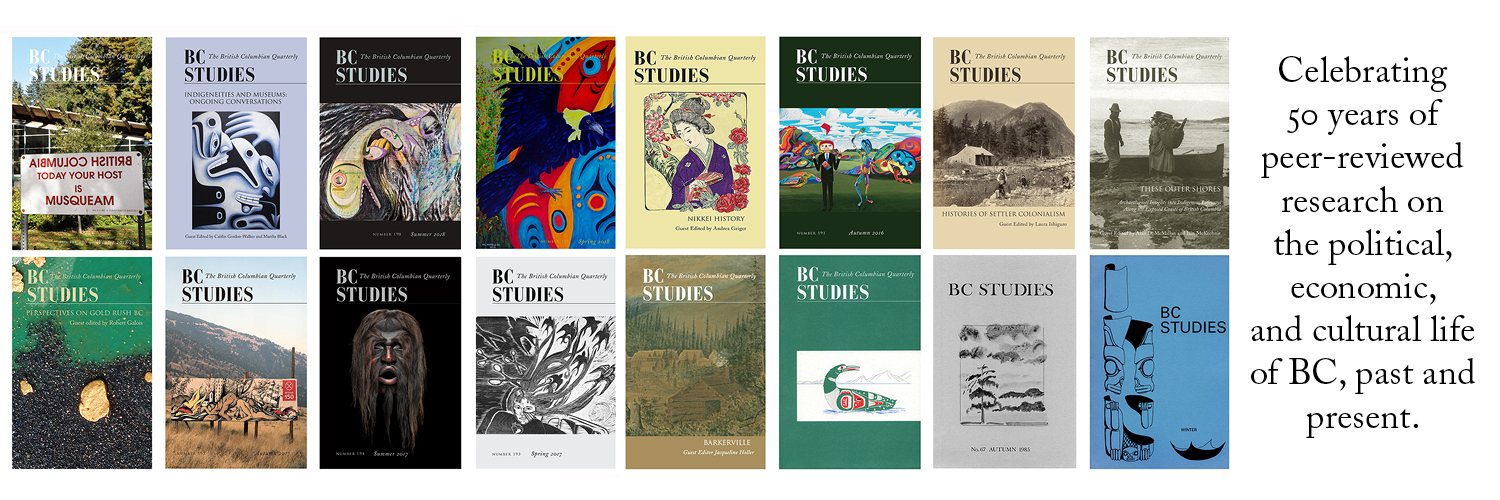"You Don't Suppose the Dominion Government Wants to Cheat the Indians?": The Grand Trunk Pacific Railway and the Fort George Reserve, 1908-12
DOI:
https://doi.org/10.14288/bcs.v0i166.288Keywords:
Indian reserves, Railways, Prince George, Lheidli T'ennehAbstract
Between 1908 and 1912, the Grand Trunk Pacific Railway appropriated reserve land possessed by the Lheidli T'enneh Band at Fort George (now Prince George), B.C., offering $68 000, and ultimately paying $125 000, for land it later sold for more than $1 million. Band members were pressured by missionary clergy and the Department of Indian Affairs, to surrender the reserve to the railway swiftly and, from the perspective of the company, cheaply. Resistance by the band to the surrender did, however, result in temporarily stalled negotiations and a marked increase in compensation. The surrender or "sale" of Reserve No. 1 is illustrative of the broader phenomenon of the transfer of aboriginal reserve land to national railways, justified by the perceived benefit of the railway to the progress and development of Canada, and by the alleged benefit of relocation and isolation of the Lheidli T'enneh to their ultimate assimilation into Canadian society.



